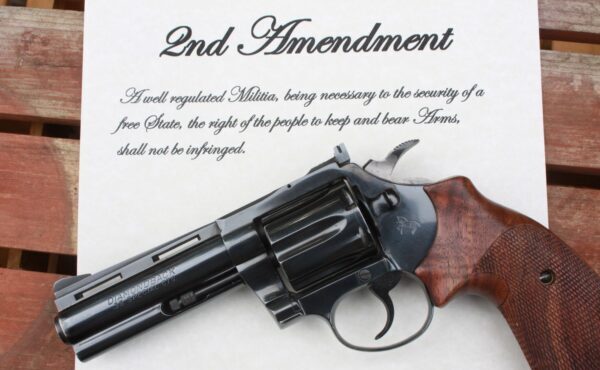
By Dave Workman
Editor-in-Chief
In a stunning 53-page ruling, the Hawaii State Supreme Court declared there is “no individual right to keep and bear arms under article I, section 17” of the state constitution in direct conflict with the U.S. Supreme Court in the Heller (2008), McDonald (2010) and Bruen (2022) decisions affirming the Second Amendment protects an individual right to keep and bear arms.
“So there is no constitutional right to carry a firearm in public for possible self-defense,” explained Justice Todd Eddins, writing for the court.
In the same text, he observes, “The spirit of Aloha clashes with a federally-mandated lifestyle that lets citizens walk around with deadly weapons during day-to-day activities.”
The ruling has stunned many in the firearms community, and one attorney who handles Second Amendment cases called it a “wild decision.” The Hawaii court appears to ignore the fact that the 2010 McDonald ruling, the high court incorporated the Second Amendment to the states via the 14th Amendment. Instead, the Hawaii ruling appears to cling to the two-step approach in determining the constitutionality of gun control laws based not just on historical perspective but in what is defined as “means-end scrutiny.” That is, whether a gun control law is necessary to “achieve a compelling government interest.”
But in the 2022 Bruen ruling, Supreme Court Justice Clarence Thomas wrote, “Despite the popularity of this two-step approach, it is one step too many.” He goes on to say neither the Heller or McDonald rulings “support applying means-end scrutiny in the Second Amendment context.”
This brings into question how Hawaii Justice Eddins arrived at this conclusion: “We read those words differently than the current United States Supreme Court. We hold that in Hawaii there is no state constitutional right to carry a firearm in public.”
The Hawaii ruling came in a case involving the prosecution of a man identified as Christopher Wilson, who was carrying a loaded handgun when contacted by police on Maui, according to CBS News. That happened in 2017.
The Hawaii ruling asserts, “The Supreme Court makes state and federal courts use a fuzzy ‘history and traditions’ test to evaluate laws designed to promote public safety. It scraps the traditional techniques used by federal and state courts to review laws passed by the People to protect people. And by turning the test into history and nothing else, it dismantles workable methods to interpret firearms laws. All to advance a chosen interpretive modality.”
Perhaps no other paragraph in the entire decision spells out Hawaii’s position, which has been rejected by the U.S. Supreme Court.
“In Heller and McDonald,” Justice Thomas wrote, “we held that the Second and Fourteenth Amendments protect an individual right to keep and bear arms for self-defense. In doing so, we held unconstitutional two laws that prohibited the possession and use of handguns in the home. In the years since, the Courts of Appeals have coalesced around a ‘two-step’ framework for analyzing Second Amendment challenges that combines history with means-end scrutiny. Today, we decline to adopt that two-part approach.”
Translation: the “two-step” framework that gives weight to the means-end approach does not pass the constitutional smell test.
Perhaps even more startling in the Hawaii ruling, this passage is found on Page 40: “As the world turns, it makes no sense for contemporary society to pledge allegiance to the founding era’s culture, realities, laws, and understanding of the Constitution. ‘The thing about the old days, they the old days.’ The Wire: Home Rooms (HBO television broadcast Sept. 24, 2006) (Season Four, Episode Three).” Hawaii Justice Eddins uses dialogue from a television drama to support the ruling he authored, while apparently rejecting the Pledge of Allegiance in the process.
Fox News reported the ruling, quoting Hawaii Attorney General Anne Lopez, a Democrat: “This is a landmark decision that affirms the constitutionality of crucial gun-safety legislation. Gun violence is a serious problem, and commonsense tools like licensing and registration have an important role to play in addressing that problem.
“More broadly,” she added, “Justice Eddins’ thoughtful and scholarly opinion for the court provides an important reminder about the crucial role that state courts play in our federal system. We congratulate our friends and partners at the Department of the Prosecuting Attorney for the County of Maui for their work on this important case.”



